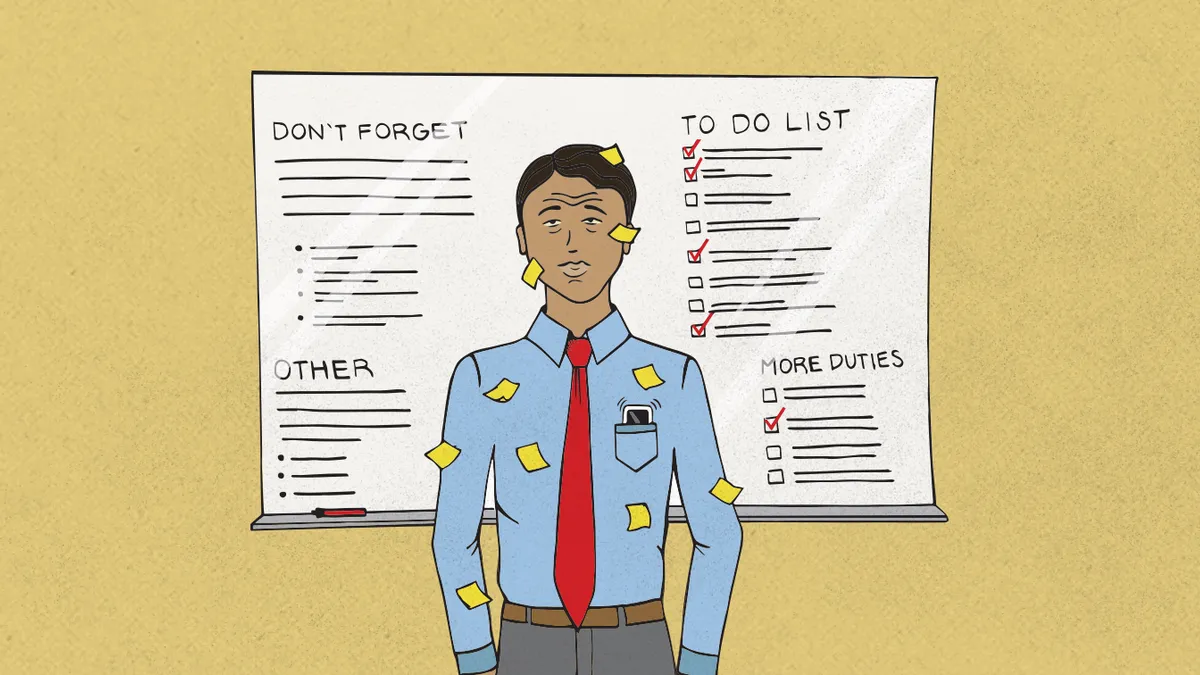In "Other Duties as Assigned," HR Dive Lead Editor Kate Tornone weighs in on employment trends, compliance best practices and, of course, the situations that require you to go above and beyond your normal duties. Today: considering even seemingly open-and-shut requests.
About a year ago, the U.S. Equal Employment Opportunity Commission sued Kroger, alleging violations of federal nondiscrimination law.
Two workers had sought an exemption from the grocer's uniform policy; they argued they should not have to wear Kroger's multicolored heart logo on their aprons because they had sincerely held religious beliefs that homosexuality is a sin. Kroger denied this request, according to the lawsuit, and ultimately fired the workers.
We've had to wait 12 long months to hear Kroger say what we all knew: that its logo is decidedly not an LGBTQ+ pride emblem.
The heart features the colors blue, light blue, red and yellow. According to Kroger's response, those four colors symbolize Kroger's commitments to: friendly and caring service; providing fresh goods to customers; uplift in every way; and improving every day. And the company does not use the heart to advocate for the LGBTQ+ community, it said.
Perhaps best of all, Kroger points out in its answer to the lawsuit that it does in fact have a pride emblem that it uses for advocacy, but doesn't require employees to wear. It advertises the employer's designation as a "best place to work" for LGBTQ equality, as defined by the Human Rights Campaign. It has an entire webpage dedicated to celebrating LGBTQ+ inclusion. But that heart logo? It's not a rainbow.
Where the allegations potentially get serious, however, is EEOC's claim that the employees had "a good faith belief that the new logo represented support for and endorsement of the LGBTQ community" and were disciplined for requesting religious accommodations in line with that belief. Kroger, in its response, said it merely implemented progressive discipline when the workers failed to comply with the uniform policy.
And that may well be the question on which this case turns: Were the employees fired for seeking an accommodation, or for failing to comply with the dress code? And if they were fired for the latter, were they, as EEOC also alleged, disciplined more harshly than employees who failed to comply for other reasons?
Perhaps those will be questions for a jury, or perhaps the parties will settle out of court. But regardless of the outcome, the allegations serve as a reminder that HR professionals should evaluate accommodation requests and complaints of discrimination or harassment seriously.
Even those that seemingly have no merit are still protected from retaliation. See, for example, a federal appeals court's conclusion that a U.S. Postal Service employee who suffered no discrimination was fired in retaliation for complaining about bias.
Employment law attorneys often recommend that employers train managers to recognize complaints and requests that should be elevated to HR — a move that can help ensure an employer complies with some laws' preference for "individualized assessments" and refrains from retaliation.


















